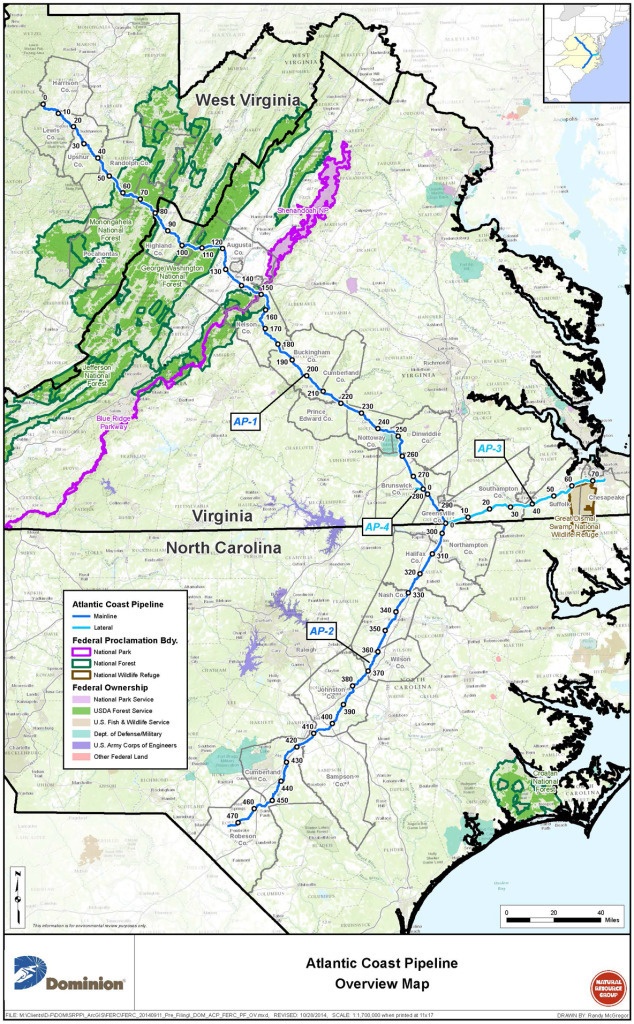INSTITUTE INDEX: Pandemic erodes the case for the Atlantic Coast Pipeline

Construction on the 600-mile-long Atlantic Coast Pipeline, proposed to carry fracked gas from West Virginia to Virginia, North Carolina, and possibly beyond, has been stalled for two years amid legal and regulatory challenges. Demand for gas was already falling before the pandemic, which has further depressed energy demand and raised new questions about the $8 billion project's necessity. (Map from Dominion Energy's website.)
Year since construction on the Atlantic Coast Pipeline — which Dominion Energy and Duke Energy want to build to carry fracked gas from West Virginia to Virginia, North Carolina, and possibly beyond — has been stalled amid legal and regulatory challenges: 2018
Current estimated cost for the 600-mile project, which was first proposed in 2014: $8 billion
Percent by which that amount exceeds the original cost estimate, with the possibility that costs could continue to rise due to numerous permits for the project being invalidated by court challenges: 100
Percent of the ACP's capacity that the utilities initially said was needed for new power plants: 80
Portion by which the utilities' need for that power-plant capacity declined even before the COVID-19 outbreak: more than 1/2
Percent by which U.S. energy demand is expected to drop this year because of the pandemic-related economic slowdown: 9
Year in which a top official with Dominion, the project's lead developer, told attendees at an energy conference that "everybody knows" the ACP isn't going to stop in North Carolina, which has led to speculation that the developers might try to connect it to the Elba Island liquefied natural gas (LNG) export facility in Georgia for shipping to global markets: 2017
Percent by which the pandemic-related recession has reduced worldwide fuel demand, with Houston-based Cheniere Energy, the largest U.S. LNG company, recently announcing it expects investment in new projects to slump: 30
Number of national and Virginia-based advocacy groups that recently signed on to a letter to Dominion Energy saying that the ACP's various challenges have made its completion "unrealistic": 78
Month in which both Dominion Energy and Duke Energy held board meetings at which they resolved to move forward with the ACP despite questions raised by concerned shareholders: 5/2020
Tons of carbon pollution that would be released annually by the ACP, not counting the climate impacts of methane leaks from the pipeline or the fracking wells that produce the gas: 30 million
Percent by which fugitive emissions from the ACP's supply chain would increase current total EPA-estimated emissions of methane — a particularly potent greenhouse gas in the short term — from all U.S. gas infrastructure: 13
Month in which a study was published in the journal Science Advances reporting that outbreaks of potentially life-threatening high temperatures and humidity are already occurring decades before scientists expected in several Deep South states including Florida, which is served by Duke Energy: 5/2020
Percent by which the pandemic-related economic slowdown has reduced carbon emissions worldwide: 6 to 8
Percent they would need to be reduced every year over the next decade in order to avoid crossing the threshold to dangerous levels of planetary warming: 10
(Click on figure to go to source.)
Tags
Sue Sturgis
Sue is the former editorial director of Facing South and the Institute for Southern Studies.
